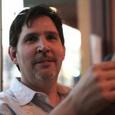According to a recent study by Sarrafi Zadeh S & Begum K entitled: "Association between insomnia and quality of life: an exploratory study among software engineers ".
In 2010, the study concluded that, “In view of the serious health consequences of insomnia in software engineers who are at high risk, suitable awareness programs should be developed as a preventative measure. Sleep assessment should be included as part of routine medical check-ups so that management of the problem is easier in the early stages. Lifestyle management programs which include sleep hygiene and care should be incorporated as a policy matter in the IT industry.”
"When it was time for bed, I would just lay there with my eyes closed and watch streams of code in my head". says Charles Bellisamo, a software engineer in Chicago describing his nightly experiences with insomnia as "having a brain that was stuck in 5th gear".
The mental activity associated with coding and all IT work is that of mathematics", says Dr. David Dubin, medical director for Sleep Recovery Centers, Inc. "And the frequency produced by the mathematical brain is clearly that of beta. In code writers, that beta is totally pushed to extremes".
It seems that there is also a fine line between mathematical beta and and the anxiety producing brainwave hi-beta as well. When the human brain develops an habitual daily pattern of beta, it can migrate upward into this next level of frequency range. And if this goes on long enough, chronic insomnia is usually what follows.
One insomnia treatment that is gaining a following with software developers is called neurofeedback, also known as brain-wave biofeedback. "I was taking Zanax and Ambien for 5 years just to try to maintain", stated Bellisamo. "The most attractive thing about neurofeedback is that it trained my brain to reduce the beta at night, but allow me to keep it during the day when I need it. It was like performing a hard-drive defrag on the brain. It also reduced my evening anxiety, (hi-beta) and that allowed me to sleep through the night".
The other anomaly that happens in IT related insomnia is called the "Theta 180". When the brain is riding normal sleep architecture, it will produce more theta (the frequency that's responsible for drowsiness) at night and, by default less during the day. With anxiety related insomnia, that dynamic is reversed--too much daytime theta and high beta at night. This is why code writers complain about being "out of it" until the late afternoon. The re-normalization of sleep architecture through neurofeedback training is one of the simplest and fastest ways to correct Theta 180.
The obvious question that begs to be asked is, what's the cost, both in human resource capital and prolonged healthcare related expenditures, that is unnecessarily incurred by software, tech and IT companies like Oracle, HP and Google? My prophecy is that international technology companies would see a full 50% reduction in all healthcare related costs within the first two years of treating insomnia within their ranks with neurofeedback.
Only time will tell.
David A. Mayen is the founder and CEO for Sleep Recovery Centers, Inc. The first to clinical practice to provide neurofeedback treatment for insomnia--conducted live via the Internet.

Post new comment
Please Register or Login to post new comment.